A Cantor's Tale is a american film released in USA on 25 july 2005 with Jackie Mason
A Cantor's Tale (2005)

If you like this film, let us know!
Released in USA 25 july 2005
Length 1h35
OriginUSA
Themes Films about music and musicians, Films about religion, Documentary films about music and musicians, Documentaire sur une personnalité, Documentary films about religion, Musical films, Films about Jews and Judaism
Rating74%










A Cantor's Tale is a 2005 documentary by Erik Greenberg Anjou. The film profiles Jacob Mendelson, a practitioner of Jewish liturgical music who has dedicated his life to preserving the form's traditional vocal stylings.
Anjou follows Mendelson around Borough Park, his old neighborhood in Brooklyn. Mendelson, who carries a tuning fork with him at all times, is prone to burst into song. During their journey through Borough Park, Anjou finds that the neighborhood has a fair number of bakers with vocal talents as good as their knishes.
Mendelson also recalls when cantors were as popular as baseball players. "They had groupies," he tells Anjou, a strong incentive for a chubby teenager in high school.
Mendelson's mother, who had been diagnosed with bipolar disorder, was almost obsessed that her son become a cantor. The film reveals an interesting link to celebrity on the part of Mendelson's father: the older Mendelson once co-owned a truck with the father of Steven Spielberg.
The movie's original title was Chazz'n, after the profiled cantor's sobriquet "Chazzan Jack Mendelson." It has also been titled A Cantor's Story.
Actors
Comments
Leave comment :
Suggestions of similar film to A Cantor's Tale
There are 5 films with the same actors, 11275 films with the same themes (including 7 films with the same 7 themes than A Cantor's Tale), to have finally 70 suggestions of similar films.If you liked A Cantor's Tale, you will probably like those similar films :
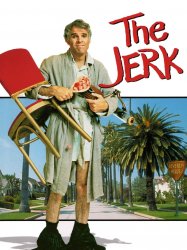
The Jerk (1979)
, 1h44Directed by Carl Reiner
Origin USA
Genres Comedy
Themes Films about music and musicians, Musical films
Actors Steve Martin, Bernadette Peters, M. Emmet Walsh, Jackie Mason, Dick O'Neill, Mabel King
Rating70%





Navin R. Johnson, a homeless man, directly addresses the camera and tells his story. He is the adopted white son of African American sharecroppers, who grows to adulthood naïvely unaware of his obvious adoption. He stands out in his family not just because of his skin color but because of his utter lack of rhythm when his adopted family plays spirited blues music. One night, he hears the staid and starchy Roger Wolfe Kahn Orchestra song called "Crazy Rhythm" on the radio and his feet spontaneously begin to move with the urge to dance; he sees this as a calling and decides to hitchhike to St. Louis, from where the song was broadcast. On the way, he stops at a motel, where a dog wakes him up by barking at his door. Navin thinks the dog is trying to warn of a fire and names the dog "Lifesaver". He wakes up the other hotel guests to rescue them, but when everyone realizes it was a false alarm, one Asian man angrily suggests he call the dog "Shithead", which Navin takes literally.
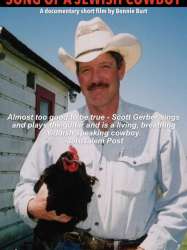
Song of a Jewish Cowboy (2002)
, 18minutesOrigin USA
Genres Documentary
Themes Films about music and musicians, Films about religion, Documentary films about music and musicians, Documentaire sur une personnalité, Documentary films about religion, Musical films, Films about Jews and Judaism

Sabbath in Paradise (2000)
, 1h25Genres Documentary, Musical
Themes Films about music and musicians, Films about religion, Documentary films about music and musicians, Documentaire sur une personnalité, Documentary films about religion, Documentary films about cities, Jazz films, Musical films, Films about Jews and Judaism
Actors John Zorn
Rating26%






Channels of Rage (2003)
Origin Israel
Genres Documentary
Themes Films set in Africa, Films about music and musicians, Films about religion, Documentary films about law, Documentary films about war, Documentary films about historical events, Documentary films about music and musicians, Documentaire sur une personnalité, Documentary films about politics, Documentary films about religion, Hip hop films, Musical films, Political films, Films about Jews and Judaism
Rating68%





The film focuses on two young rap artists, Subliminal, an Israeli Jew, and Tamer Nafar, a Palestinian citizen of Israel, and focuses on their music, friendship, and their politicization as public figures. The film traces the relationship between Tamer and Subliminal, as the events of the Second Intifada unfold, and lets the viewer draw conclusions from the souring relations between the two as an individual representation of the polarization process which took place during these years of bloody conflict. In this aspect, the film succeeds in delivering the atmosphere of the loss of hopes for peace after the failure of the Camp David summit between Ehud Barak and Yasser Arafat and the renewed intensity of the conflict since. The film was featured in the San Francisco Jewish Film Festival.

Baba Lubba (1995)
, 1hOrigin Israel
Genres Documentary
Themes Films about music and musicians, Films about religion, Documentary films about music and musicians, Documentaire sur une personnalité, Documentary films about religion, Musical films, Films about Jews and Judaism
 , 58minutes
, 58minutesOrigin USA
Genres Documentary
Themes Films about music and musicians, Films about religion, Documentary films about music and musicians, Documentaire sur une personnalité, Documentary films about religion, Films about classical music and musicians, Musical films, Films about Jews and Judaism
Actors Judd Hirsch
Rating6%





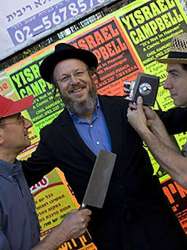
Circumcise Me (2008)
Genres Comedy
Themes Films about music and musicians, Films about religion, Documentary films about music and musicians, Documentaire sur une personnalité, Documentary films about religion, Musical films, Films about Jews and Judaism
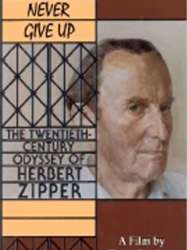 , 40minutes
, 40minutesDirected by Terry Sanders
Origin USA
Genres Documentary
Themes Films about music and musicians, Films about racism, Films about religion, Documentary films about racism, Documentary films about law, Documentary films about war, Documentary films about historical events, Documentary films about music and musicians, Documentaire sur une personnalité, Documentary films about religion, Films about classical music and musicians, Musical films, Political films, Films about Jews and Judaism, Documentary films about World War II
Rating59%





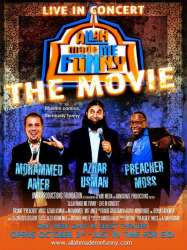
Allah Made Me Funny (2008)
, 1h22Directed by Andrea Kalin
Origin USA
Genres Comedy, Documentary
Themes Films about music and musicians, Films about religion, Documentary films about music and musicians, Documentaire sur une personnalité, Documentary films about religion, Musical films, Films about Islam
Actors Azhar Usman
Rating60%





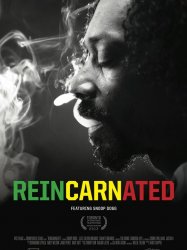
Reincarnated (2012)
, 1h36Directed by Andy Capper
Origin USA
Genres Documentary, Musical
Themes Medical-themed films, Seafaring films, Films about music and musicians, Films about drugs, Films about religion, Transport films, Documentary films about music and musicians, Documentaire sur une personnalité, Documentary films about religion, Documentary films about health care, Hip hop films, Musical films
Actors Snoop Dogg, Dr. Dre, Daz Dillinger, Stewart Copeland
Rating61%





As most of those who follow the Rastafarian faith do, Snoop decided to go through a transformation into his new self; his new, Rastafarian self. Reincarnated documents Snoop Dogg’s transition into Snoop Lion, which involved him taking a trip to Jamaica to make a reggae album and discover more about the Rastafarian faith. The documentary starts out by exploring Snoop’s past; his time on Death Row Records, the loss of his friends Tupac and Nate Dogg, and the murder accusation. The focus then shifts to his spiritual journey and new style of music. While in Jamaica, Snoop collaborated with a few famous reggae artists, including Bunny Wailer and Diplo, to create the Reincarnated (album), which focuses on love and nonviolence. Wailer was Snoop’s guide throughout the trip, leading him through his journey into Rastafarianism. The film includes many intimate moments with Snoop, where he discusses his personal thoughts and reasons for becoming Rasta. The documentary also includes the heavy marijuana smoking in which Snoop participated, which is a common practice among Rastafarians, and a common stereotype of how they practice their faith as well.
 Connection
Connection
